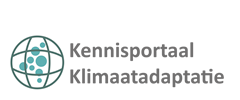Rheden climate workshop
Under its climate adaptation programme, the Province of Gelderland intends to encourage climate resilience. In addition to taking account of climate change in provincial policy, the authorities are also actively pointing out the importance and added value of climate adaptation to the regions and municipalities. Various efforts are being expended to this end, such as setting up climate workshops. On 25 November 2013, one such climate workshop was organised for the benefit of the municipality of Rheden.
Results
The climate workshop comprised 3 “units”:
- Purpose and framework outlined by representatives of the municipality and the province of Gelderland;
- Explanations of climate policy and its impact on Rheden, and of the situation in the municipality in terms of soil, water, and greenery;
- Initiation of an adaptation strategy by sketching spatial options, and a debate on governance, collaboration, and policy.
Effective climate adaptation calls for a wide range of visions, policy, tools, and forms of collaboration. At the end of the workshop, a number of interesting aspects were discussed.
Municipal approach
The municipal authorities are currently failing to look ahead sufficiently, and their approach is too sectoral. They are predominantly swayed by the issues of the day. The atelier underscores the importance and benefit of tackling issues in an integrated fashion, rather than adopting a sectoral approach. This working method could be adopted in other important projects.
The atelier demonstrated the urgency of climate adaptation. The urgency can be substantiated further by computing the cost of “not taking action”. The benefits generated will need to offset the costs incurred by rendering the municipality climate-resilient. Costs and benefits do not always end up with the same parties, and often involve different time frames. Linking up with other policy themes may mitigate this obstacle.
This insight is a good reason to foster an integrated approach and collaboration, including with partners such as the district water board and the housing corporation.
Support
Climate adaptations will require broad-based support among the population. However, their current priorities apply at a different level. For this reason, communication vis-à-vis the population is vitally important. Greater interventions require political support. The presence of the chairs of both executive committees indicates that politicians consider this aspect important. This attention needs to be retained and to result in concrete policy.
Concrete policy
Integration of climate adaptation into municipal policy may be achieved by drawing up a municipal integrated soil-water-greenery vision, as the pilot city of Amersfoort has done. Another good option is the new spatial planning vision. After all, climate change is an integrated topic involving the interface between many policy fields. In addition, the expertise could be applied in the Velp-Zuid restructuring plans. This could be a fine model project for the municipality and the entire region.
Methods
The natural alliance method and the guiding models are tools for integrating climate adaptation into the spatial planning domain.
